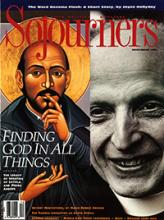CAPE TOWN, SOUTH AFRICA -- There is war and peace in South Africa. Instead of promoting political tolerance and initiating reconciliation, the country's political leaders are locked into a fierce battle for power -- a battle that has forced the people in the black townships to withstand violence that has killed more than 3,700 people nationwide in the last 22 months. More and more, a cry is going out from ordinary South Africans to institutions such as the church to intervene in the conflict.
Over the last few months, the African National Congress (ANC) has drawn from the weapons of its old armory -- sanctions, boycotts, strikes, and mass action -- to combat the South African government's thinly veiled pre-election campaign. The ANC has singled out in its attack the government's implementation of a comprehensive new tax system, which further burdens the poor and pre-empts a revised tax system under a new constitution; and the killing of people in the townships by certain "off-duty" reputed police officers (the so-called "third force" in the violence) and Inkatha members (a predominantly Zulu organization).
The ANC has gone as far as suggesting that foreign loans contracted by the present government -- to embark on their multi-billion-dollar reform program to pay for "backlogs" in black education, housing, social services, and health care -- might not be honored by future "democratic" (ANC) rulers. And what came as a big blow to international investors was the statement by ANC president Nelson Mandela that the ANC still supports nationalization as an option to address the economic imbalances in the country -- an idea most business people in South Africa believed the ANC had shelved.
Read the Full Article

